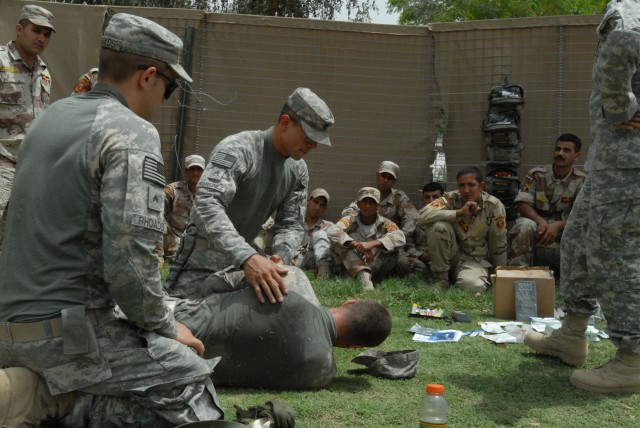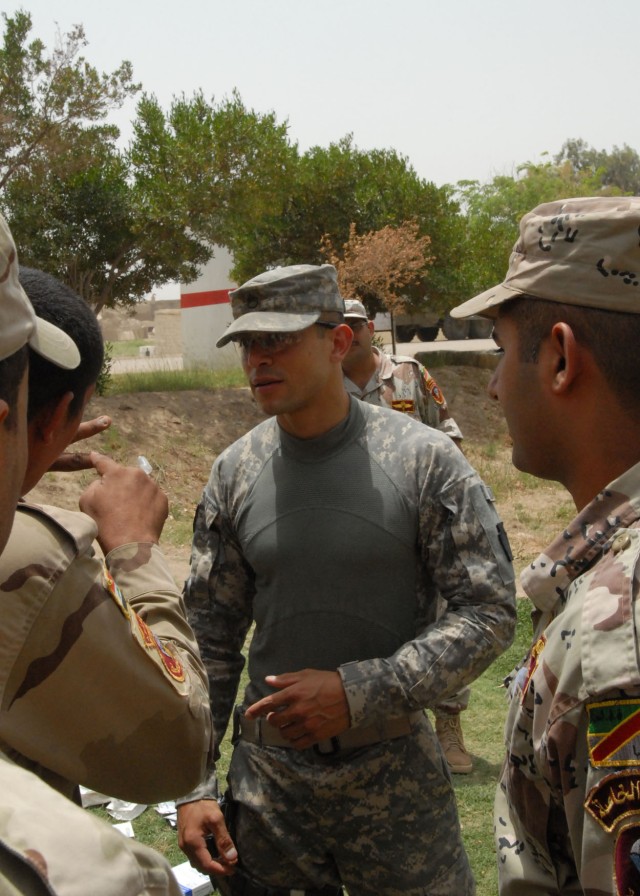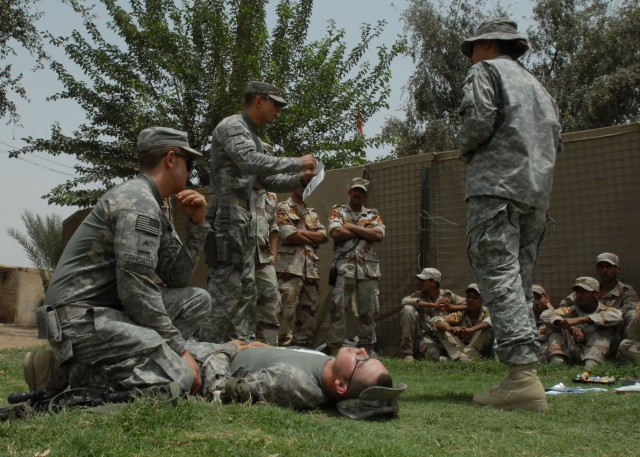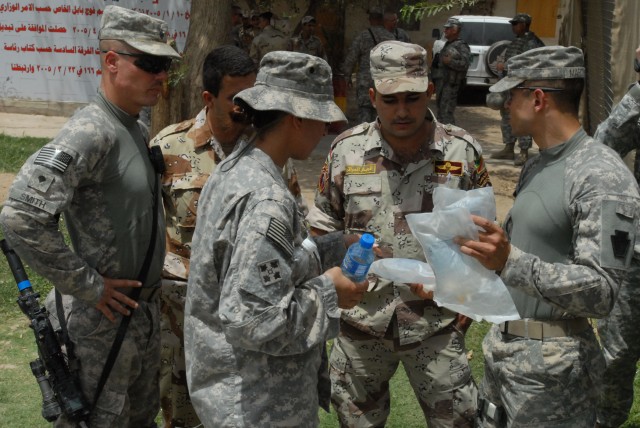CAMP TAJI, Iraq - Pennsylvania Guardsmen showed Iraqi Army Soldiers here, May 17, that a basic level of care can sustain an injured comrade until more advanced medical aid is available.
Medics from 2nd Battalion, 112th Infantry Regiment, 56th Brigade Combat Team taught a portion of the Army's Combat Lifesaver course, and showed IA Soldiers that basic skills can make a big difference.
Staff Sgt. Jose Martinez of Lebanon, Pa., a company medic, showed the class how to clear an airway, how to stop bleeding and how to treat a punctured lung. Martinez said medics view casualties on a timeline.
"All we're doing is providing a standard of care to buy them more time. What we need to do is buy some minutes," Martinez said.
Martinez, who normally works as an instructor with the Pennsylvania Army National Guard's 166th Training Regiment at Fort Indiantown Gap, said if a combat lifesaver-trained Soldier can buy that time for an injured Soldier, the level of care received will increase - from that provided by a CLS, to a medic's care, to care provided by an evacuation team's medics to care by doctors at field hospitals.
Bringing the CLS class to the IA Soldiers is a first step in an effort by Company D Soldiers to expand training opportunities for troops from Iraqi Army's 3rd Battalion, 24th Brigade at Abu Ghraib. The U.S. Soldiers worked with the IA in the past to conduct traffic control points but wanted to expand training into areas such as first aid and vehicle maintenance.
"Our guys have been eager to offer training to the Iraqi Army in several different capacities," Lt. John Detweiler, of Starksboro, Vt., a platoon leader with Co. D said. "And this was a first step in strengthening the relations between us and Iraqi Army by aiding them in their CLS. We hope to further that process in the future by adding more tactical training."
Martinez said teaching the class gave him a better understanding of what's involved in instructing the IA. One issue to be considered is the extra time required for a class that depends upon use of an interpreter. He and other Soldiers said future training events will be better because of groundwork laid through this first block of instruction.
"Today was the most we've interacted with them on a personal level," Cpl. Jason Rhoads, of Oley, Pa., a team leader and vehicle commander, said. "We tried to give them a basic knowledge of how they can extend somebody's life on the battlefield."
Rhoads said translation loss is one point to consider when training with IA Soldiers. He said training also has to include plenty of hands-on instruction.
"It was a good learning point for us and we'll do better next time," Rhoads said.
Rhoads, a combat lifesaver, said the CLS class is a good starting point for additional training to the IA because all Soldiers gain confidence in knowing "the guy next to you can help you."
Of Iraqi Soldiers who may become Combat Lifesavers, Martinez said he wants "to see them really care for people" and "wants them to be results-based medics." Martinez told IA Soldiers that CLS skills can be needed in everyday life and said, "Some of the worst injuries happen on post."
"You, being Soldiers, are providing the first line of treatment," Martinez told the class.








Social Sharing